- Technology Sourcing Services
- 5G
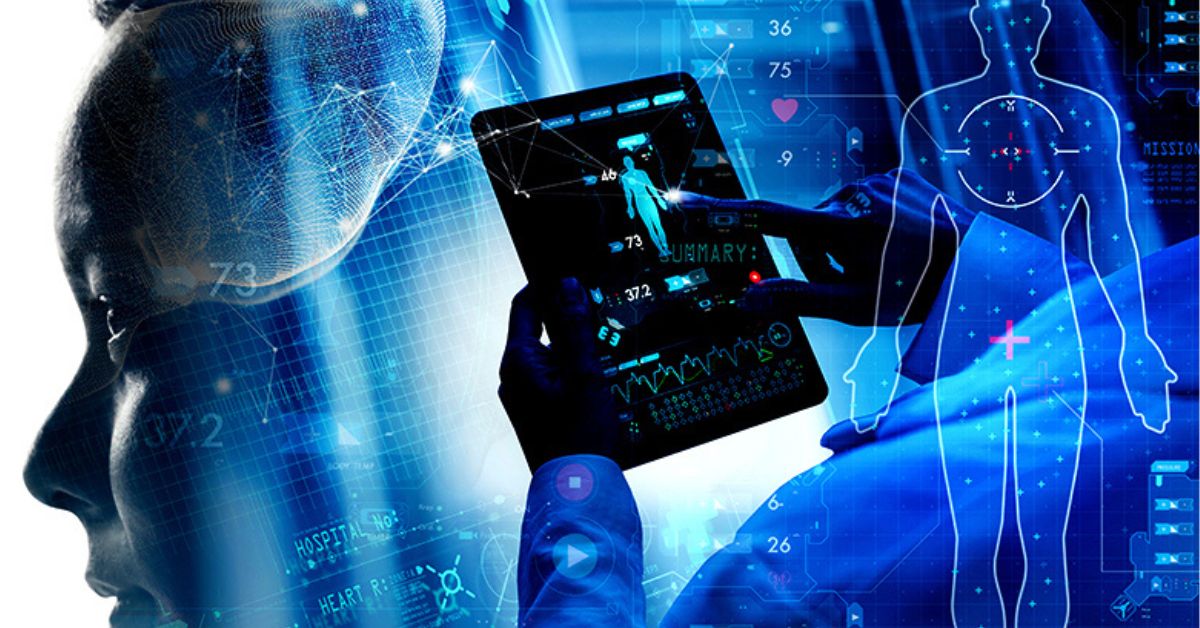

Emma Mak • Staff Writer
Healthcare urgently needs reliable, secure, and consistent connectivity. Disparities in rural versus suburban care, surging rates of chronic illness, and an aging population are just some of the reasons it’s critical to enhance healthcare efficiency and accessibility.
5G (the fifth-generation mobile network) has finally rolled out, and it’s spurring exciting healthcare innovations. Like a freeway with more lanes, 5G wireless cellular technology has higher capacity — and the potential to hit download speeds and ultra-low latency approaching that of a wired connection.
The Benefits and Possibilities
A hospital campus can be massive, with millions of square feet and multiple buildings. Ideally, clinicians can maintain network connectivity without dead spots as they move within facilities and from building to building — 5G networking solutions have this capability. The ability of 5G to transmit large amounts of data quickly and reliably means improvement for existing applications but also drives a lot of potential new use cases:
- Think of seamless video communication between doctors and patients without lag or buffering.
- Picture simulation of real-world situations such as surgeries, emergencies, or diagnoses in immersive AR/VR environments, providing better training opportunities with lower cost and less risk for a wider audience.
- Imagine the real-time transfer of vital signs data from ambulance paramedics to hospital critical care staff or detailed pictures and HD videos from clinical equipment to a remote clinician for diagnosis.
Today’s workers often use up to four smart devices, which quickly adds up when multiplied by the number of hospital staff. The Internet of Things (IoT) is already big in the healthcare industry, with wearable devices and connected medical equipment helping to monitor patients and collect data. All these devices can make for a crowded network. With 5G’s increase in bandwidth, a massive number of high-speed devices can be connected.
5G Public and Private Networks
Public 5G networks, owned and operated by carriers, are generally available to everyone; they offer wider coverage and lower costs but don’t offer the same level of control and security as private networks.
Privacy and security are top concerns in healthcare. Standalone dedicated on-premises networks isolated from public networks are one solution. Private 5G networks can be optimized for specific use cases and offer control, such as prioritizing network traffic to ensure bandwidth for critical applications. Another solution is using network slicing to create a virtual private instance (slice) of a service provider’s public network.
- Group the alerts – for example, if the EHR system experiences a network outage that affects multiple servers and applications, AIOps groups all the alerts related to the network outage into one incident.
- Filter out irrelevant alerts, such as those expected due to routine maintenance or testing activities for the EHR system.
- Prioritize incidents based on their urgency, importance, or business impact. If the EHR system has some incidents that affect patient safety or privacy, such as data loss or breach, AIOps prioritizes these incidents and assigns them a critical status.
By using AIOps to group related alerts using event correlation, the healthcare organization successfully reduces alert fatigue and improves incident management for their EHR system.
5G Hybrid: Making 5G Fit Healthcare Use Cases
Hybrid 5G networks use a mix of public and private infrastructure, allowing organizations to benefit from the strengths of both. For example, specific critical use cases could use the private network, while the public network could handle the less sensitive functions.
An example of a 5G hybrid network for healthcare has been developed at Boston Children’s Hospital (BCH). BCH originally wanted to upgrade its Wi-Fi capabilities; with a footprint of over 19 buildings and 3 million square feet (about the area of a large shopping mall), they chose a 5G environment to provide reliable connectivity anywhere within its system. Mission-critical applications were moved from Wi-Fi to 5G.
Now, BCH’s internal secure network extends beyond its walls. As clinicians move between facilities, where before they would have lost Wi-Fi, they can now maintain their connection with the 5G network. The solution also provides connection across all their campuses and to remote practitioners.
Compucom’s Recent Partnership with T-Mobile
As tech leaders investigate 5G private networks to prepare for the future of healthcare, device readiness is a major consideration.
5G phones are now mainstream, and every year, more and more 5G native devices are released. Samsung and Apple offer 5G tablets, and 5G laptops are becoming increasingly available, with Dell, HP, Lenovo, and Samsung all offering them as an option.
Learn how Compucom recently partnered with T-Mobile as part of T-Mobile Business’ Connected Laptop offering to keep workforces productive and connected.
RecenT
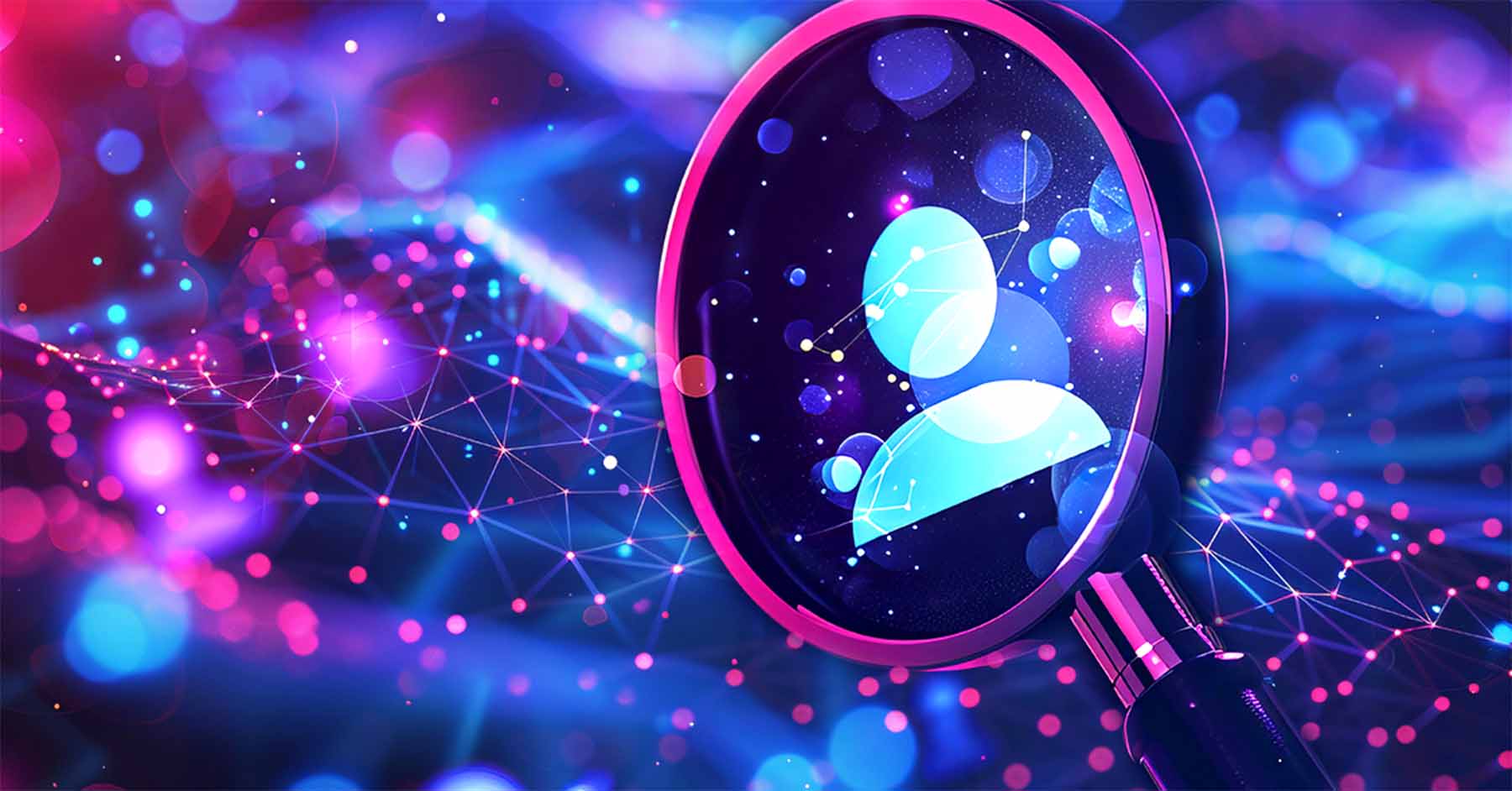
9 Ways Strategic IT Staffing Empowers Organizations
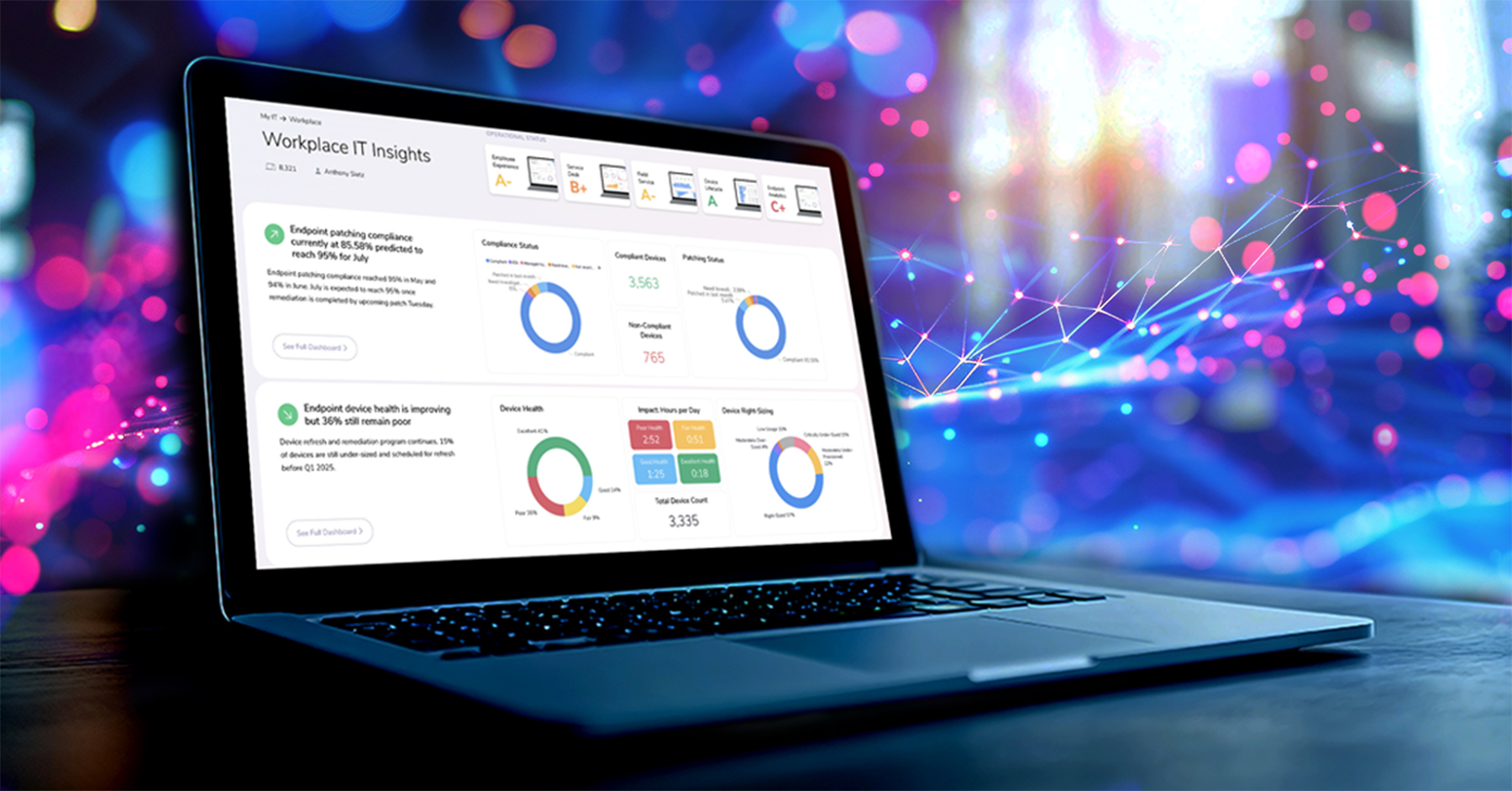
Case Studies: Asset Intelligence and Endpoint Compliance Made Easy
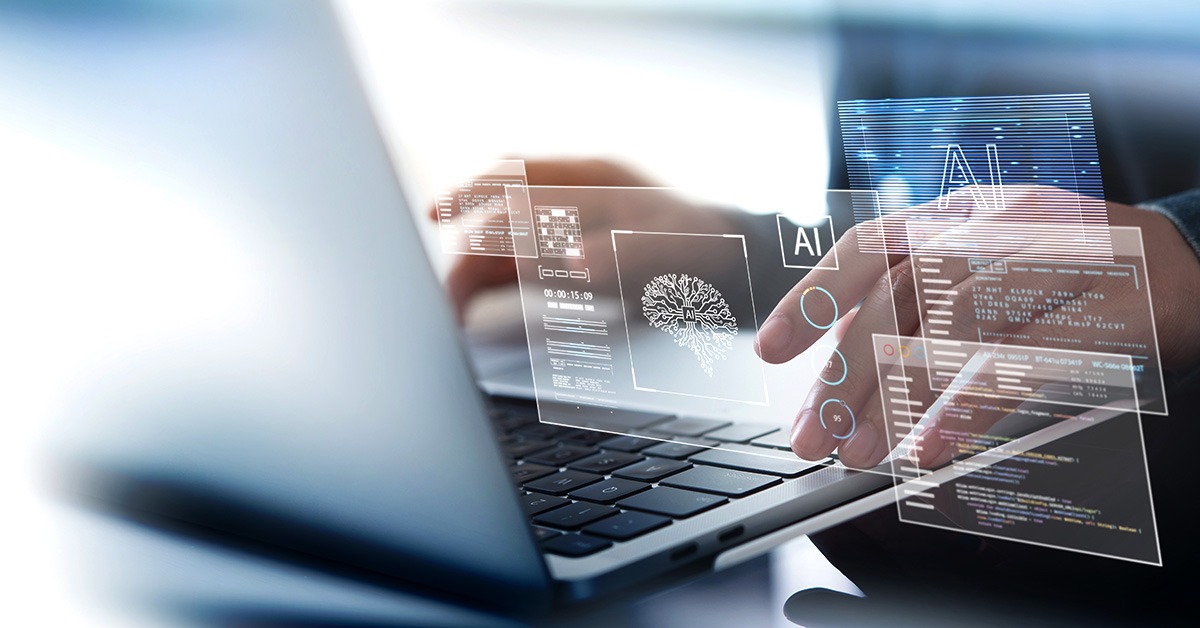
AI and the Enterprise: The Future of IT Management

Exploring the Opportunities and Obstacles of AI in the Enterprise
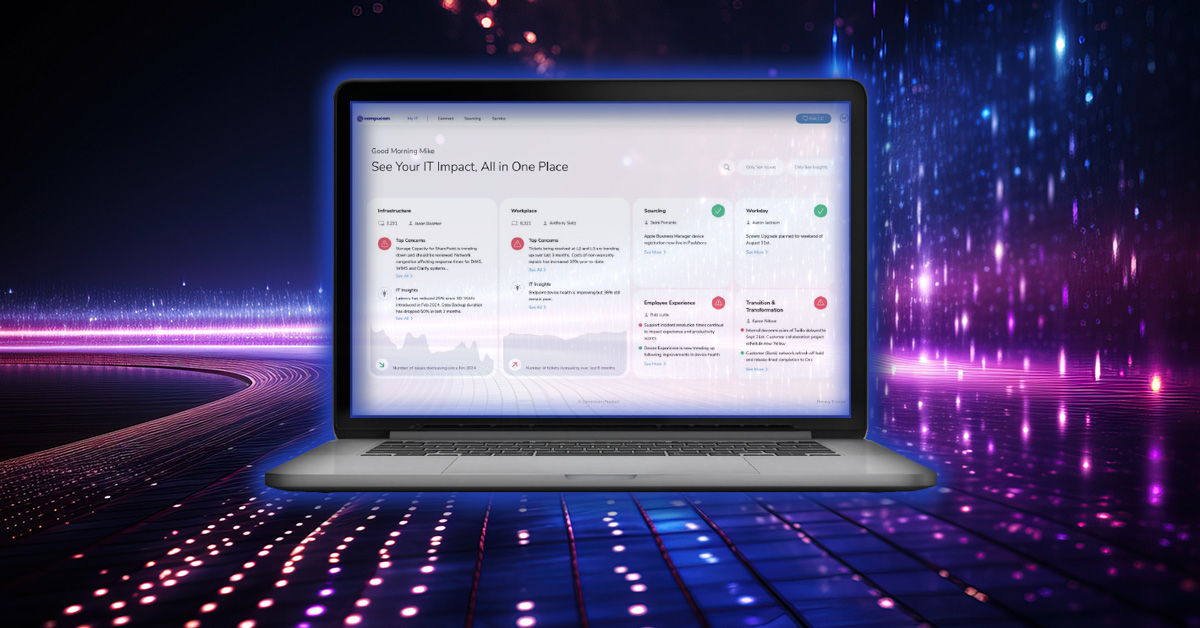
One Dashboard to Rule Them All: Strategic IT Excellence with Full Lifecycle Observability
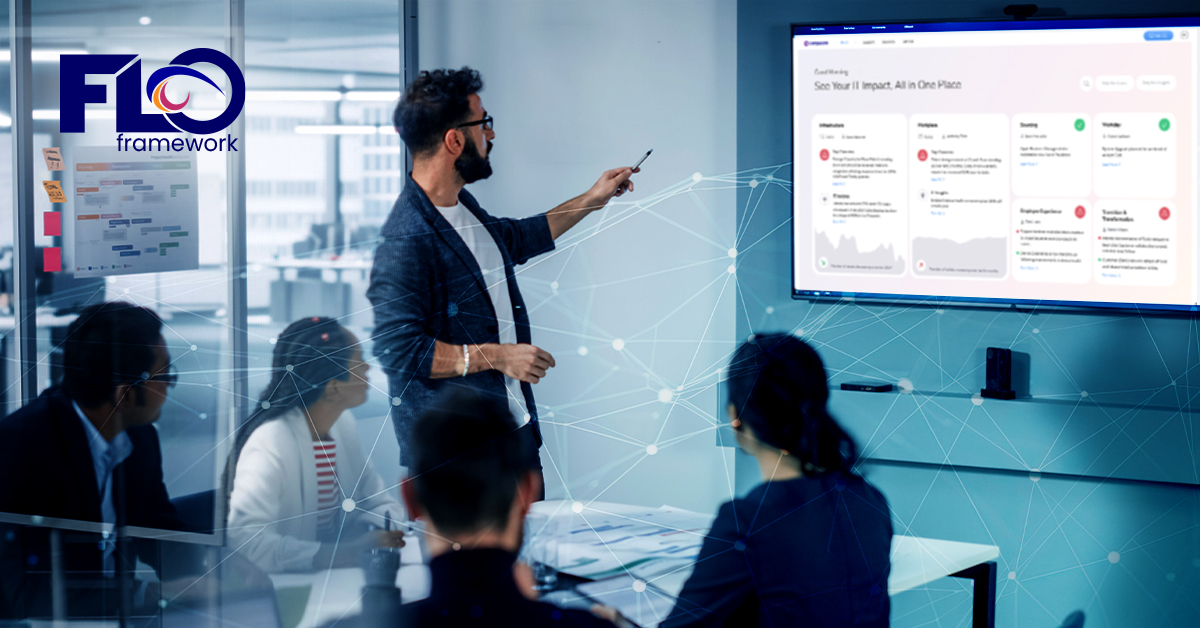
Transforming IT Operations with Full Lifecycle Observability: How Compucom’s FLO Framework Redefines Data-Driven Efficiency
TOPICS
The Benefits of 5G to Healthcare
- Technology Sourcing Services
- 5G

Emma Mak • Staff Writer
Healthcare urgently needs reliable, secure, and consistent connectivity. Disparities in rural versus suburban care, surging rates of chronic illness, and an aging population are just some of the reasons it’s critical to enhance healthcare efficiency and accessibility.
5G (the fifth-generation mobile network) has finally rolled out, and it’s spurring exciting healthcare innovations. Like a freeway with more lanes, 5G wireless cellular technology has higher capacity — and the potential to hit download speeds and ultra-low latency approaching that of a wired connection.
The Benefits and Possibilities
A hospital campus can be massive, with millions of square feet and multiple buildings. Ideally, clinicians can maintain network connectivity without dead spots as they move within facilities and from building to building — 5G networking solutions have this capability. The ability of 5G to transmit large amounts of data quickly and reliably means improvement for existing applications but also drives a lot of potential new use cases:
- Think of seamless video communication between doctors and patients without lag or buffering.
- Picture simulation of real-world situations such as surgeries, emergencies, or diagnoses in immersive AR/VR environments, providing better training opportunities with lower cost and less risk for a wider audience.
- Imagine the real-time transfer of vital signs data from ambulance paramedics to hospital critical care staff or detailed pictures and HD videos from clinical equipment to a remote clinician for diagnosis.
Today’s workers often use up to four smart devices, which quickly adds up when multiplied by the number of hospital staff. The Internet of Things (IoT) is already big in the healthcare industry, with wearable devices and connected medical equipment helping to monitor patients and collect data. All these devices can make for a crowded network. With 5G’s increase in bandwidth, a massive number of high-speed devices can be connected.
5G Public and Private Networks
Public 5G networks, owned and operated by carriers, are generally available to everyone; they offer wider coverage and lower costs but don’t offer the same level of control and security as private networks.
Privacy and security are top concerns in healthcare. Standalone dedicated on-premises networks isolated from public networks are one solution. Private 5G networks can be optimized for specific use cases and offer control, such as prioritizing network traffic to ensure bandwidth for critical applications. Another solution is using network slicing to create a virtual private instance (slice) of a service provider’s public network.
- Group the alerts – for example, if the EHR system experiences a network outage that affects multiple servers and applications, AIOps groups all the alerts related to the network outage into one incident.
- Filter out irrelevant alerts, such as those expected due to routine maintenance or testing activities for the EHR system.
- Prioritize incidents based on their urgency, importance, or business impact. If the EHR system has some incidents that affect patient safety or privacy, such as data loss or breach, AIOps prioritizes these incidents and assigns them a critical status.
By using AIOps to group related alerts using event correlation, the healthcare organization successfully reduces alert fatigue and improves incident management for their EHR system.
5G Hybrid: Making 5G Fit Healthcare Use Cases
Hybrid 5G networks use a mix of public and private infrastructure, allowing organizations to benefit from the strengths of both. For example, specific critical use cases could use the private network, while the public network could handle the less sensitive functions.
An example of a 5G hybrid network for healthcare has been developed at Boston Children’s Hospital (BCH). BCH originally wanted to upgrade its Wi-Fi capabilities; with a footprint of over 19 buildings and 3 million square feet (about the area of a large shopping mall), they chose a 5G environment to provide reliable connectivity anywhere within its system. Mission-critical applications were moved from Wi-Fi to 5G.
Now, BCH’s internal secure network extends beyond its walls. As clinicians move between facilities, where before they would have lost Wi-Fi, they can now maintain their connection with the 5G network. The solution also provides connection across all their campuses and to remote practitioners.
Compucom’s Recent Partnership with T-Mobile
As tech leaders investigate 5G private networks to prepare for the future of healthcare, device readiness is a major consideration.
5G phones are now mainstream, and every year, more and more 5G native devices are released. Samsung and Apple offer 5G tablets, and 5G laptops are becoming increasingly available, with Dell, HP, Lenovo, and Samsung all offering them as an option.
Learn how Compucom recently partnered with T-Mobile as part of T-Mobile Business’ Connected Laptop offering to keep workforces productive and connected.
Recent Blogs

9 Ways Strategic IT Staffing Empowers Organizations

Case Studies: Asset Intelligence and Endpoint Compliance Made Easy

AI and the Enterprise: The Future of IT Management

Exploring the Opportunities and Obstacles of AI in the Enterprise

One Dashboard to Rule Them All: Strategic IT Excellence with Full Lifecycle Observability




